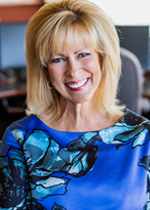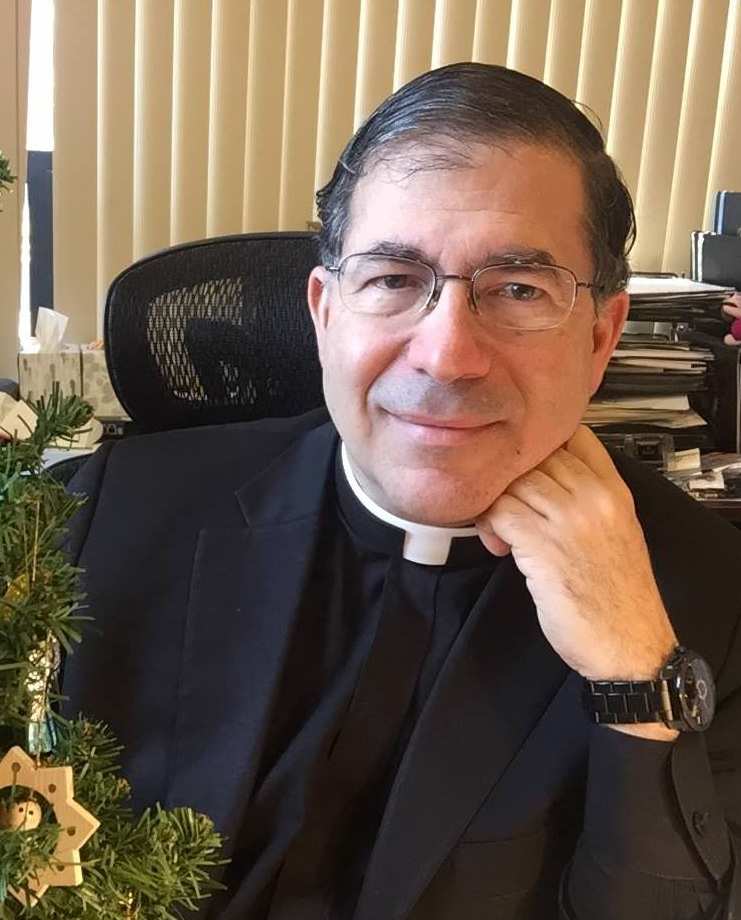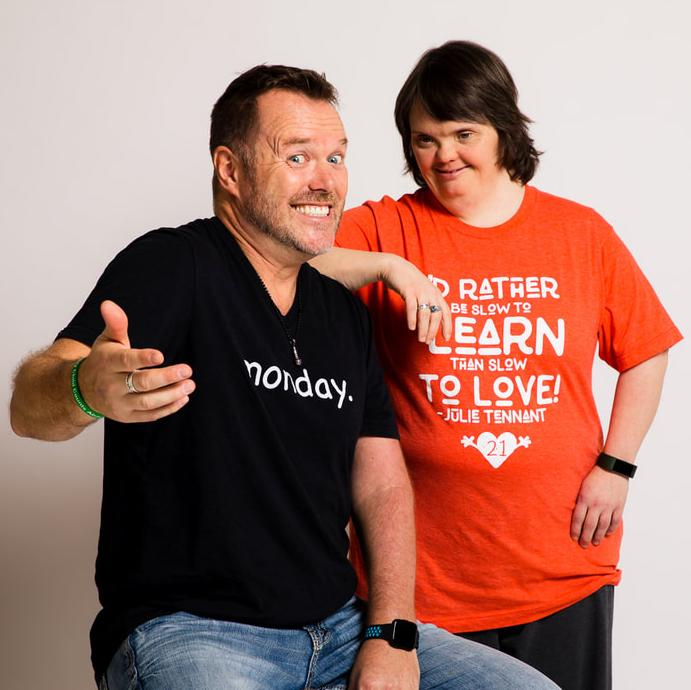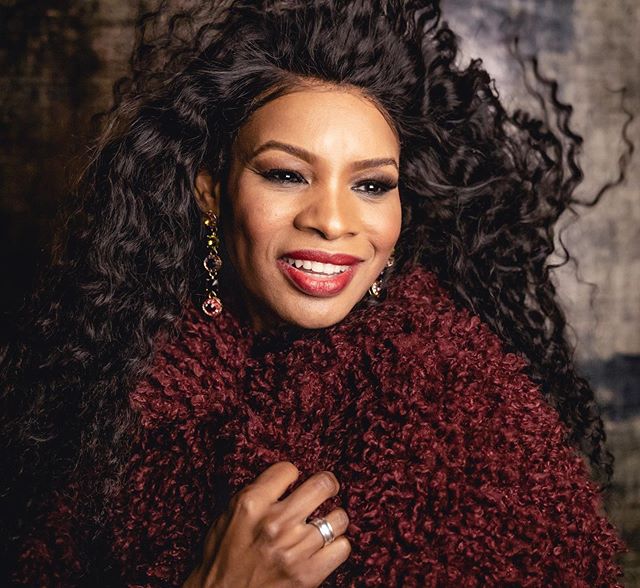Jennifer Wright
Considering Our Mission during the COVID-19 Pandemic
We understand your concerns for staff and clients during this time of uncertainty during the ongoing COVID-19 outbreak and want you to know that Heartbeat International is praying for each of you, your clients, and all who support your centers. Because this is an ever-changing situation, we are also watching the global resources we have available through the government and would recommend centers do the same: the Centers for Disease Control and Prevention (CDC.gov), and the World Health Organization (WHO.int).
In addition, centers should have or create policy for infection prevention and hand-washing. For more information about what should be included in those policies, the OSHA COVID-19 website is helpful.
Clients may ask "If I have the virus or if I’ve been exposed should I get an abortion?"
Walking with Moms in Need

This year, the U.S. Conference of Catholic Bishops is asking Catholic churches in the US to intensify their focus on the needs of women facing pregnancies in challenging circumstances. All U.S. bishops are encouraged to invite their parishes to join the nationwide effort from March 25, 2020 to March 25, 2021 entitled “Walking with Moms in Need: A Year of Service.”
Individual parishes are asked to complete an inventory of the resources currently available in their local area, assess the results and identify gaps, and plan and implement a parish response based on their findings.
During the inventory process, (May-September of 2020) parishes are being encouraged develop relationships with their local pregnancy help center. With well over 17,000 Catholic parishes in the United States, and over 2,700 pregnancy help centers, there is great opportunity for collaboration. The intent of this effort is not to turn parishes into pregnancy centers, but to have parishes better connect women in need to the local resources, and to encourage parish support of local pregnancy help efforts.
Once a bishop invites his parishes to join the Year of Service, parish teams would begin to survey local resources, especially pregnancy help centers. Pregnancy help centers are welcome to proactively contact the Catholic parishes in their area to share the wonderful help they are already providing to mothers in need.
To find out more about Walking with Moms in Need: A Year of Service, visit www.walkingwithmoms.com. To connect with the local Respect Life contact for the diocese in your region, click here.
The Heartbeat International Response to openDemocracy's Claims
Timeline | Claims | Quotes
If you've seen openDemocracy's coverage of Heartbeat International, you may be wondering how Heartbeat would respond. The reality is, this is not the first media attack we've faced, and we've found that transparency is our best defense against these kinds of unfounded attacks.
To that end, our president, Jor-El Godsey, responded in an open letter to our affiliates and supporters in response attack to this egregious attack .
We've seen indication that openDemocracy plans to continue targeting our affiliates around the world going forward, and so we want you, our brothers and sisters in life and goodwill, to know the facts to be best prepared in contending with any future baseless attacks.
Regarding the group's claims, the reality is we received such little notice from them and so little detail as to what they planned to release, that it was impossible for us to look into the claims immediately. As they subsequently sent additional information, we have been able to clarify the claims, or at least what we believe to be the basis for these claims, given the limited amount of information provided.
Outright falsehoods aside, one problem with their purported investigative research into Heartbeat's affiliate centers is that many times they simply point to a region, and the claims have otherwise not been clear about what information was stated by whom, where and when. This approach, dubious at best, compromises the validity of the claims at the outset.
Most of the claims regarding the centers are rehashed from the false claims we've addressed for years in the United States. While this group and others may not like the science, it exists, and is our foundation for the information we give to women.
Regarding the claims pertaining to Heartbeat's webinars, to be frank, this group is highly misrepresenting and/or cherry-picking information from the webinars without including any of the citations supplied that support our training. Essentially, they do not care that there are scientific studies that validate links between abortion and depression; abortion and cancer; and the negative effects abortion has on men.
Timeline
- Nov. 2018: We launched PregnancyCenterTruth.com to combat the lies and validate the good work of pregnancy centers for such a time as this
- Feb. 7, 2020: We learn of openDemocracy’s intention
- Feb. 10, 2020: Key Heartbeat Staff provided openDemocracy the information below with expectation that it would be included in their reporting
- Feb. 10, 2020: Heartbeat notifies all joint affiliate partners
- Feb. 10, 2020: openDemocracy publishes hit piece against Heartbeat pregnancy centers titled "Exclusive: Trump-linked religious ‘extremists’ target women with disinformation worldwide”
- Feb. 11, 2020: Heartbeat issues response
- Feb. 11, 2020: openDemocracy launches a "Tracking the Backlash" campaign to smear pro-life, Christian pregnancy centers worldwide
- Feb. 11, 2020: openDemocracy publishes “Revealed: US-linked anti-abortion centres ‘violating the law’ in South Africa”
- Feb. 12, 2020: openDemocracy publishes “How openDemocracy is tracking anti-abortion misinformation around the world”
- Feb. 12, 2020: openDemocracy publishes “European lawmakers demand action on anti-abortion misinformation”
- Feb. 12, 2020: openDemocracy publishes “Revealed: US-linked anti-abortion centres ‘lie’ and ‘scare women’ across Latin America”
- Feb. 13, 2020: Heartbeat emails all supporters and affiliates: Open letter denouncing Big Abortion attacks
- Feb. 13, 2020: Pregnancy Help News publishes Jor-El’s letter
- Feb. 17, 2020: openDemocracy publishes “‘You could die and turn your husband gay’. How I learned to talk women out of legal abortions”
- Feb. 19, 2020: openDemocracy is interviewed on the BBC Women’s Hour
- Feb. 24, 2020: openDemocracy publishes "Croatian MPs from nine political parties call for inquiry into 'crisis pregnancy centres'"
- Feb. 24, 2020: openDemocracy publishes "Top Ugandadn health official condemns US-linked 'pregnancy crisis centres' for opposing contraception"
- Mar. 9, 2020: openDemocracy publishes "Inside Italian public hospitals, I saw how a US-linked anti-abortion network is 'humiliating' women"
On this page, we provide a much more comprehensive view into each claim. We have reviewed the webinars they purchased, and were able to identify what they have chosen to misrepresent. The intentionally left out citations and context are included below.
Claims
An openDemocracy reporter listened to two of our webinars: Talking About Abortion: An Overview, and Abortion: the Basics (This one compliments another that the reporter did not view, and, in order to ensure transparency,we are happy to share access with you if you would like).
The Talking About Abortion Overview training is designed to aid staff/volunteers in sharing important information about procedures and risks that empower the client to make an informed decision. It is not intended that staff/volunteers share all of the information with each client, but by educating staff and volunteers we ensure that they are equipped to discuss all risks, considerations, and concerns with clients.
To this end, as the training begins, the instructor states:
"With love and truth, our goal is to help the client understand abortion more fully, so that she can truly make an informed decision."
The subsequent information shared in the training is detailed information about procedures, risks, complications, and considerations we believe women should be aware of in order to make an informed decision.
In the Abortion: the Basics, our presenter ends with the following:
"Our job is...to share accurate information with clients from a place of love and care...We let the women know the potential risks and consequences that abortion can have on their lives. Our clients have the right to choose an abortion, but they also have the right to know more fully what may be at stake in their decision."
In regard to all the claims, at this time, we do not plan to put out multiple defense messages to refute each accusation they make. Instead, we plan to focus on the good work our pregnancy centers are doing throughout the world and the impact they have in their communities. We will continue to invest in our centers so they can be as effective as possible in creating a culture that provides compassionate help and support to women in need. In short, we’re more concerned about doing the work we’ve been called into and supporting our affiliates than combatting the unfounded and clearly biased accusations by openDemocracy.
However, we are happy to answer questions regarding their claims for our affiliates, supporters, and others who may be concerned.
Claims that Heartbeat erroneously teaches that abortion increases women’s risks of abusing their children
- In Heartbeat’s training materials, many potential side effects connected with abortion are listed, including anger as a side effect directed at husbands/boyfriends, citing a California Survey of Medicaid Patients.
- Child abuse/neglect is listed as an associated risk. Actual narration describes it as one "Domino effect of drug and alcohol abuse"
- "Because of the things we've already been talking about following abortion...all of this, these are all factors that are closely associated with child abuse. A greater incidence of child neglect or abuse with children that they have outside of the pregnancy that was aborted their other children are more neglectful of them or abusing them."
- This is taken from a study by the Elliot Institute - Here's their footnote on the risk: 20. Benedict, et al., "Maternal Perinatal Risk Factors and Child Abuse," Child Abuse and Neglect, 9:217-224 (1985); P.G. Ney, "Relationship between Abortion and Child Abuse," Canadian Journal of Psychiatry, 24:610-620, 1979; Reardon, Aborted Women - Silent No More (Chicago: Loyola University Press, 1987), 129-30, describes a case of woman who beat her three year old son to death shortly after an abortion which triggered a "psychotic episode" of grief, guilt, and misplaced anger.
Suggestions that Heartbeat teaches abortion can ‘turn’ a woman’s partner gay
- In a webinar, on a slide regarding post-abortion effects on men, we mention an increased risk of relationship problems, stating couplesare more likely to divorce or separate due to an abortion.
- Closest quote: "Future relationships with women become difficult or impossible, some men experiment with homosexuality. Other forms of sexual dysfunction can surface..." The instructor then goes on to describe pornography addiction, etc. as additional forms of sexual dysfunction. There are several studies regarding abortion and sexual dysfunction.
- https://www.menandabortion.net/index.php/author/bradley-mattes/
- https://www.menandabortion.net/index.php/resources/research/
- This table has several resources: https://www.menandabortion.net/wp-content/uploads/2015/07/men_abortion_summary_table.pdf
- https://www.silentnomoreawareness.org/shockwaves/june/men-hurting.aspx
- 2008 - Abortion and the sexual lives of men and women: Is casual sexual behavior more appealing and more common after abortion?
- 1999 - Sexual Dysfunction in the United States Prevalence and Predictors
Misleading advertising, including some Heartbeat affiliates that present themselves online as pro-choice support groups – or abortion providers
- There is nothing in either training accessed that indicate these claims. Our trainings on the topic highlight the importance of being honest in our advertising and ensuring online marketers working on behalf of centers are operating ethically. That being said, they could characterize any training on using keywords like "abortion information" as misleading.
- Here again, they are misunderstanding/misrepresenting what Heartbeat is: We are a non-profit federation of faith-based pregnancy resource centers, medical clinics, maternity homes and non-profit adoption agencies. Heartbeat’s affiliates must adhere to basic principles that affirm alternatives to abortion and ensure non-discrimination, but all other matters of policy and management remain under the direction of the centers’ local leadership, allowing for autonomy.
- We are not a franchise model as they indicate in a few of their articles.
Staff at some Heartbeat affiliates offering ultrasounds without medical qualifications
- Our training emphasizes adherence to applicable laws and defers to the medical director as the authority for any individual organization.In addition, we have recommendations for finding a medical director and what steps need to be taken to provide high-quality, effective medical care.
- From our Commitment of Care and Competence: Medical services are provided in accordance with all applicable laws, and in accordance with pertinent medical standards, under the supervision and direction of a licensed physician.
Other applicable resources our centers have access to regarding abortion risks:
- Abortion Fallout: Breast Cancer
- Abortion: Physical Risks
- Abortion: Psychological and Emotional Risks
- Dr. Keroack's Ultrasound Statistics Study
- Post-Abortion Survivor Syndrome: Signs and Symptoms
- Thirty Studies in Five Years Show Abortion Hurts Women’s Mental Health
Quotes
The following quotes from key Heartbeat staff members were, for the most part, not included in openDemocracy's reports. When the below quotations were used by openDemocracy, they were attrbuted not to the individuals below, but to a "Heartbeat spokesperson," and were not used in their entirety.
Ellen Foell, Esq., International Specialist for Heartbeat International:
Heartbeat International stands firmly by “Our Commitment of Care and Competence" (CCC), while training continuously on it and promoting its use throughout the world, because we know that every woman deserves love and support during an unexpected pregnancy. No woman should feel alone, coerced, or so hopeless that she ends her child’s life through abortion.
Since we work with pregnancy help organizations in more than 60 countries worldwide, we know that each country has its own abortion laws and cultural norms.
The truth stands, no matter where you are in the world, that abortion ends the life of a developing human baby. While residents of different countries may communicate it in different ways, that is the definition of abortion.
And while different countries have their cultures and varied ways of communicating, the fact remains that abortion carries risks to women.
Cindi Boston-Bilotta, Heartbeat International Vice President:
We stand by all of our training resources designed for the pregnancy help community. “With love and truth, our goal is to help the client understand abortion more fully, so that she can truly make an informed decision,” as the presenter clearly stated at the beginning of our training cited in your report.
Women should have access to comprehensive information regarding all risks associated with any given medical procedure, no matter what that procedure might be. This is absolutely crucial to ensuring informed consent. Pregnancy centers look to scientific studies about the short and long-term effects of abortion in order to ensure that clients are empowered with facts before making a life-altering decision. (See "Additional References" document attached.)
Prior attempts to allege that pregnancy centers are remiss in the area of truth in advertising have been unsuccessful, with the pregnancy centers affirmed time and again by the courts. Heartbeat will vigorously defend the good work of our pregnancy centers and our commitment of care.
Betty McDowell, LSW, Heartbeat International Vice President:
Every woman has a right to know all the information before making an abortion decision. Denying women awareness of the emotional, psychological and physical risks that abortion can cause would be neglectful and dangerous.
Science has proven time and again that there are psychological and emotional risks for women involved with abortion, and for those providing care to women, it would be irresponsible to withhold this information.
Thank you for your patience while we reviewed openDemocracy’s claims and our training. We continue to stand behind our training and our affiliates. We hope that you continue to do the same.
You can find additional information about the good work of pregnancy help organizations at PregnancyHelpNews.com and at PregnancyCenterTruth.com.
Kathy Barnette's Story
Meet Kathy Barnette, one of the 2020 Heartbeat International Annual Conference Keynote speakers!
More about our Keynote Speakers
We are glad to welcome Keynote speakers for the 2020 Heartbeat International Annual Conference, who are key leaders in the pregnancy help movement, as well as prolife leaders from around the United States.
Cindi Boston
 Vice President of Heartbeat International
Vice President of Heartbeat International
Cindi Boston serves as vice president of Heartbeat International. She oversees expansion and funding of the mission to reach and rescue as many lives as possible, around the world, through an effective network of life-affirmining pregnancy help. Working tirelessly, Cindi strives to advance Heartbeat's global impact ensuring sustainability and growth. She leads Heartbeat's advocacy efforts, including Heartbeat's Babies Go to Congress, where moms and babies, served and saved by pregnancy centers, meet with U.S. lawmakers.
Cindi is the proud mother of two sons, Josh and Caleb.
Kathy Barnette
 Author/Political Commentator/Veteran/Mom
Author/Political Commentator/Veteran/Mom
Appearing regularly on National TV & Radio, Christian Conservative Mother & Wife, Kathy Barnette's common sense voice resonates in today's snowflake society. She is a veteran, a former adjunct Professor of Corporate Finance, sought after conference speaker, as well as Conservative political commentator.
She served her country proudly for 10 years in the Armed Forces Reserves, where she was accepted into Officer Candidacy School. Her corporate career includes working with two major Wall Streeet firms and in corporate America. Kathy sat on the Board of a pregnancy crisis center for 5 years.
Perhaps her most cherished opportunity, to date, besides being a wife, is the ability to homeschool her two children.
Jor-El Godsey
 President of Heartbeat International
President of Heartbeat International
Jor-El Godsey serves as President of Heartbeat International. He leads a staff dedicated to equipping, empowering, and encouraging the thousands of leaders and developing leaders of Heartbeat’s affiliated pregnancy help centers, maternity homes, and adoption services, in the U.S. and on every inhabited continent. He oversees Heartbeat’s core mission to be the leadership supply line for the growing pregnancy help movement worldwide by providing accurate information, training resources, leadership development conferences, programs, and daily support to help affiliates start, grow, and expand their services to women and couples at risk for abortion.
Father Frank Pavone
 National Director of Priests for Life
National Director of Priests for Life
Father Frank Pavone is one of the most prominent pro-life leaders in the world. Originally from New York, he was ordained in 1988 by Cardinal John O'Connor, and since 1993 has served full-time in pro-life leadership with his bishop's permission. He is the National Director of Priests for Life, the President of the National Pro-Life Religious Council, and the National Pastoral Director of the Silent No More Awareness Campaign and of Rachel's Vineyard, the world's largest ministry of healing after abortion.
He has received numerous pro-life awards and honorary doctorates and he is the author of four books, Ending Abortion, Not Just Fighting It; Pro-Life Reflections for Every Day; Aboloishing Abortion, and Proclaiming the Message of Life.
Derrick and Julie Tennant
 The Love Chromosome
The Love Chromosome
Brother and sister duo, Derrick and Julie Tennant have worked very hard to overcome many physical and mental life-challenges. Today they work just as hard using comedy and inspirational events worldwide to help others overcome trials and realize the incalculable value of every life.
Nicole C. Mullen
 Award-Winning Singer & Songwriter
Award-Winning Singer & Songwriter
Nicole C. Mullen has long been known as an undeniably talented artist who is unafraid to be vulnerable and transparent with her audience. She continues a legacy of sincerity and artistic integrity that in the past has been recognized with two Grammy® Award nominations and nine Gospel Music Association Dove Awards, including two Female Vocalist of the Year honors, Song of Year for "Redeemer," and "On My Knees," the Urban Album of the Year for "Everyday People," Contemporary Song of the year (Call on Jesus), and the first African American female to win Songwriter of the Year for "Redeemer."
Discover more learning opportunities at the 2020 Heartbeat International Annual Conference by clicking here!
I Ain’t Got Time for That!
Servants of Excellence
So I sent messengers to them, saying, “I am doing a great work and I cannot come down. Why should the work stop while I leave it and come down to you?”
Nehemiah 6:3
As Nehemiah and his workers closed in on rebuilding the wall of Jerusalem, his mockers—Sanballat and Geshem—sent a message to Nehemiah, asking for a conference. Why? Because they were afraid of his coming success. As Nehemiah points out, they wanted to stop the work—and harm him in the process.
Preparing to write this piece, a text message popped up on my phone from the executive director of one of our fellow pregnancy help centers. The ministry is under attack from a local abortion-advocacy group, which posted on its Instagram page, “Fake Clinics Love Lying.” In the post, they point directly to her pregnancy help center as a main culprit.
Welcome to the Sanballats and Geshems of today’s world.
Friends, if we’re effective at our calling, we’ve either experienced this first-hand or we are about to.
When we love our clients so much that they find hope and the courage to carry on through an incredibly challenging pregnancy, the opposition takes notice.
The opposition first tries mockery. We see this in Nehemiah when Tobiah the Ammonite saw the work starting and said, “Even what they are building—if a fox should jump on it, he would break their stone wall down!” (Neh. 4:3)
Years ago, the pregnancy help community faced the same. Those who profit from ending pregnancies saw us as nothing but a nuisance. They had their big money from the federal trough, and hardly noticed us. They would glance our way and laugh—then go about their lucrative business.
Not today. Now, the abortion lobby is nervous, rightfully concerned we are winning the hearts of the regular people who were always uncomfortable with abortion but saw nowhere else to turn. Now that we are building our wall, a wall which those facing unexpected pregnancies can come inside for safety from those who would prey upon them for profit, we threaten the opposition’s existence.
Whether it is Instagram, Facebook, Twitter, magazines or online “investigations,” the opposition sends its message: “Come down off your wall. Engage with us and distract yourself from all you seek to accomplish.”
Yes, there are times we must engage and provide wise responses. Jesus did this when needed.
But far more often, our answer must be, “I am doing a great work and cannot come down. Why should the work stop while I leave it and come down to you?”
Our calling? Keep doing the great work. And when the attacks inevitably come our way, our modern response might be to look down from our perch on the wall and say, “I ain’t got time for that.”
by Kirk Walden, Advancement Specialist
Are You Composed Under Pressure?
That's the question Dr. Rob McKenna has for you and all leaders leading up to the 2020 Heartbeat International Annual Conference this April.
The findings at WiLD Leaders? It's a matter of purpose.
Check out Dr. Rob McKenna's message to you below as he prepares to share more with you through his PEG Talk and Deeper Dive at this year's Heartbeat International Annual Conference in Seattle.
Dr. Rob McKenna from WiLD Leaders
Of Logs and Specks
Servants of Excellence
“. . . First take the log out of your own eye, and then you will see clearly to take the speck out of your brother’s eye.” Matthew 7:5
The verse above completes one of Jesus’ teachings on judgment, outlining how we should address another’s challenges regarding faith and life. But it’s fascinating that this verse is probably the least quoted in this section of The Sermon on the Mount.
For instance, we often hear people tell us, “Do not judge lest you be judged,” which is the first portion in this teaching. It’s true, we’re not ultimate judges. We should not suppose ourselves to be the final arbiters of another’s life. It’s not our job. Quoting only this verse, however, leaves us with only a small part of what Jesus is trying to say.
Jesus goes on, letting us know we do have a role to play in helping others dealing with their failings and the baggage they carry.
Jesus begins by reminding us about human nature: We’re quick to see someone else’s faults, which He describes as a speck in the eye. Of course, He’s right. He’s also correct by telling us we have issues, too,
But here’s the problem: A speck in our own eye, even if we don’t want to deal with it, causes such disruption to our lives that its impact—on us—is that of a log in our eye.
The good news? Instead of walking away after pointing out the hypocrisy of berating others for their “specks,” Jesus brings hope for us.
His answer? “First take the log out of your own eye, and then you will see clearly to take the speck out of your brother’s eye.”
In Pregnancy Help Ministry, many of us—perhaps all of us—can bring our own “logs” into our work. Our issues may be pregnancy related, or from another area of our lives. Or—and let’s hope this isn’t the case—we could carry a log of pride into our work which screams, “I’ve got it all together and you need help.”
Jesus’ counsel on this is so powerful. First, he says, let’s ask ourselves if we have a log needing removal. If we do, let’s take the time to carefully do the heavy lifting. It’s not easy. Because, if we think about getting a log out of our eye, we understand the eye is one of our most sensitive areas.
But, once we’ve done the painstaking work of removing our own log, we’ll see clearly once again. With this clarity and our experience in removing our own log, we’re ready to help another. When we do, we’re more likely to listen carefully when they describe how the speck got in their eye. We’ll pay close attention to how it is affecting their vision and their decisions. We’ll note—with empathy--the pain it is causing.
Once we’ve taken the time to take in all this information, we’ll think once again about how challenging it was to remove our own log. So, when we gently reach to remove our friend’s speck, we will do so with reverence and caution, remembering the sensitivity in our own eye and how the slightest abrupt motion could damage the process.
In this work, we’re “Speck Removers.” It’s an important role for any of us, and we can’t shy away from it. Our apprenticeship begins by asking, “Do I have a log needing removal?” If we’re willing to do this—and to take on the work needed to remove our own logs, we’re well on our way to becoming outstanding speck removers, characterized by both sensitivity and patience.
by Kirk Walden, Advancement Specialist
Heartbeat International
I'm a Sexual Risk Avoidance Education Success Story
by Jennifer Minor, Editor/Writer
Heartbeat International
In seventh and eighth grade at my Catholic school in suburban Cleveland, Ohio, I went through a program with my class called Operation Keepsake. When I started working at Heartbeat and interacting with the leaders of classes and programs in schools and out, somehow I didn’t make the connection. Then, I attended a presentation by Mary Anne Mosack where she shared about her journey with Ascend and Sexual Risk Avoidance Education (SRAE). It was only then that all the pieces fit together at last.
You see, Operation Keepsake was a step on the journey for Mary Anne doing her work spreading SRAE in schools. And here’s the thing, that class affected me in ways I didn’t realize at the time.
Fifteen years after my SRAE experience, I’m about to get married. I’m constantly overwhelmed with excitement (and sometimes stress), and I know that part of it is that my fiancé and I have done things in order.
We’re following the success sequence that SRAE teaches. We both got our educations, we have full time jobs, we’re getting married, and then we’ll think about kids, and we both made the choice to have one partner for life. Not only does this fit both of our Christian values and match up with God’s plan for our sexuality, it has demonstrable, research-backed benefits for society. Following all three behaviors in the simple success sequence (graduate, work full-time, marry before having children) leaves a millennial with only a 3% chance of living in poverty as an adult. The statistics are pretty clear, and you can see all of the data that Ascend has gathered here.
Now, I’ll admit, I didn’t walk out of Operation Keepsake with the success sequence in my brain. I walked out with much more information about STD/STIs than I wanted to know. I was hyper-aware that crossing certain lines would make it difficult to back up. It was the nature of my teenage brain, I suppose, but the success sequence stuck anyway (in part certainly due to my own family’s values).
While I didn’t have much of a dating life in middle school or high school, the dating I did in my twenties did make me think back to Operation Keepsake. I remembered that love is not sex. I remembered that there was a holy and healthy way to approach my sexuality, and while I had certainly learned more since those classes when I was about fourteen, SRAE was a part of my foundation.
That’s why I am grateful that Heartbeat International makes sure there’s opportunities for pregnancy help organizations to dive into Sexual Risk Avoidance Education at the Heartbeat International Annual Conference. My experience with SRAE was certainly supported by family and friends that stood by its teachings, but as I continue to prepare for marriage and my future, I’m so glad that more students will have the experience I did and gain the tools to make healthy and holy decisions for their lives as well.
I’m an SRAE success story, and I fully hope that more and more will be able to say the same.
Mary Anne Mosack, president/CEO of Ascend, will be presenting an In-Depth Training on Sexual Risk Avoidance at the 2020 Heartbeat International Annual Conference. You can click here to find out more or to register for this training opportunity. Additional resources from Ascend can be found at weascend.org.
Not Just a Body

An excerpt from Hooked: The Brain Science on How Casual Sex Affects Human Development
by Dr. Joe McIlhaney, MD
Editor's note: Dr. McIlhaney will be presenting on the topic of Brain Science and Sex at the 2020 Heartbeat International Annual Conference. You can join him to learn more in his workshop on Wednesday (Day 2) of the Conference. Below is an exerpt from the first chapter of his book on the same subject.
Now that we have defined sex according to physical activity—according to what our bodies are doing—we’re ready to talk about the rest of the story. In order to truly understand why sex sells and why it is so pervasive in our society, we have to understand that humans are not just sex machines or animals. We, as human beings, are so much more.
If we think of sex as only a physical activity to be engaged in at our pleasure, and only for our pleasure, we will be blindsided by problems produced by the misunderstandings and miscalculations of our human nature. If we think our makeup is limited to satisfying appetites, we’ll conclude that we can engage in sexual activity, enjoy it on a physical level, and totally disassociate these acts from the rest of what we are as human beings—but we’ll be sadly mistaken and be blindsided by what might happen to us.
Going back to the time of sexual awakening, important research into the phenomenon of puberty has yielded some important discoveries. It has been found that teenage boys with high testosterone levels were more likely to engage in sexual behaviors than boys with lower hormone levels.1 In girls, early puberty has been linked to early age of first sexual intercourse.2 Yet research has found that parental relationships had the greatest influence on teen sexual behavior.
So, what’s the point? It is worth remembering that every child’s body and brain transforms as he or she gets older, and this transformation has a huge physical and psychological impact on all things sexual. An intense fascination and desire for sex often accompanies these changes. Yet simply going through puberty or having a sex hormone coursing through a young person’s bloodstream, or even a specific genetic disposition, does not determine the decisions they make about sex. Beneficial factors, such as home environment and adult guidance, can help shepherd an adolescent through this tumultuous period in life. Negative guidance, if it dominates, from peers or the media can make the journey much more difficult.
Finally, it is clear that the brain is still developing during puberty and will continue to do so far after the external physical changes have reached their conclusion.
A 2017 survey of high school adolescents illustrates that sexual activity has more ramifications beyond the physical. The survey showed that both boys and girls who have had sex are more likely to be depressed than their friends who have not. The survey also asked questions regarding considering making a suicide attempt, making a suicide plan, and actually attempting suicide. Those students who had not had sexual contact consistently had lower percentages than their sexually experienced classmates on all questions regarding suicide.3
In all likelihood, none of these young people were aware that depression and suicidal thoughts might be caused in part by their sexual behavior. Consider the following questions:
- Why are those who were not virgins when they married more likely to divorce than those who remained abstinent until marriage?4
- Why are sexually active adolescents more likely to be depressed than their abstaining peers?10
- Why do married couples report higher levels of sexual satisfaction than unmarried individuals with multiple sexual partners?5
The answers, of course, lie in the fact that human beings are creatures who are much more than physical bodies. We possess the ability for cognitive thought, which includes judgment, abstract thinking, planning for the future, moral intelligence, and other processes that govern our lives. Our decision-making ability, coming from the highest centers of the brain, can guide an individual to the most rewarding sexual behavior—unless bad programming from premature and unwise sexual behavior during the adolescent years has occurred, adversely affecting the brain’s ability to make healthy decisions.6
This is a risk about which most young people and most parents are totally unaware.
Fortunately, modern neuroscience of the past few years has opened a door of understanding that provides incredibly helpful guidance away from trouble. Many of the answers to the questions above, and others, may be found in modern neuroscientific research, the study of the human brain and nervous system, which has revealed startling new information about how sex affects the brain.
In the past, efforts to accurately assess the connection between sex, love, sexual desire, sexual risk-taking, and so on with brain activity were limited. But with the aid of modern research techniques and technologies, scientists are confirming that sex is more than a momentary physical act. It produces powerful, even lifelong, changes in our brains that direct and influence our future to a surprising degree.7 This new neuroscience information, which has greatly expanded over the past three decades, has transformed the scientific discussion about sex. Perspectives from medical, public health, and social science literature will also be utilized in this book to enhance our understanding of sexual behavior in adolescents and young adults in the larger cultural context.
The uniqueness of becoming an intimate part of another person’s mind and body—emotional and physical bonding, both experienced in a healthy way, and the vital role this plays in one’s health, happiness, and hope for the future—are the central issues we will be explaining in this book. It is probably the most important outcome of healthy, positive sex.
References:
- Harden, K. Paige. "Genetic influences on adolescent sexual behavior: Why genes matter for environmentally oriented researchers." Psychological Bulletin 140.2 (2014): 434.
- Pringle, Jan, et al. "The physiology of adolescent sexual behaviour: A systematic review." Cogent social sciences 3.1 (2017): 1368858.
- Kann L, McManus T, Harris WA, et al, “Youth Risk Behavior Surveillance – United States, 2017,” MMWR Surveillance Summaries/ Vol. 67/No. 8
- Wisnieski, Deborah, Renee E. Sieving, and Ann W. Garwick. "Influence of peers on young adolescent females' romantic decisions." American Journal of Health Education 44.1 (2013): 32-40.
- Wilcox WB and Wolfinger NH, “Men and Marriage: Dubunking the Ball and Chain Myth”, Institute for Family Studies, https://ifstudies.org/ifs-admin/resources/ifs-researchbrief-menmarriage-083117.pdf accessed June 2018
- American College of Pediatricians, “The Teenage Brain: Under Construction,” May 2016 http://www.acpeds.org/the-college-speaks/position-statements/parenting-issues/the-teenage-brain-under-construction
- Jensen, Frances E (2015) The Teenage Brain, New York, NY Harper Collins
Why Others Want to Join Us
Servants of Excellence
They were taking their meals together with gladness and sincerity of heart, praising God, and having favor with all the people. Acts 2: 46B-47A
In Luke’s account of life in the early church, he gives us a few sentences of how the early Christians—after suddenly growing from a group of 120 people to more than 3,000—found a way to thrive and expand even more.
According to Luke, they listened to powerful teaching from the apostles, they hung out together, they prayed together and . . . they did a lot of eating together (v. 42).
In addition, as wonders and signs took place through the apostles, these brand-new Christians trusted each other enough to share whatever they had to support the cause.
But toward the end of what we know as the second chapter of Acts, Luke points out something we—as those involved in pregnancy help ministry—can easily latch onto every day. The early Christians, he says, took “their meals together with gladness and sincerity of heart, praising God (italics mine).”
Aha! The first followers weren’t just eating together (which is always a good idea for volunteer and paid staff gatherings) because they needed food. They did so with sincerity and gladness . . . which seems like joy to me. These folks loved each other. Cared for each other. Over food, they delved into each other’s lives.
Here’s the thing: While those outside of the faith didn’t likely see any of this fellowship time, something happened as a result. Let’s let Luke tell it:
“. . . and having favor with all the people. And the Lord was adding to their number day by day those who were being saved.”
You see what happened? Because of what was taking place around the tables, those outside the faith saw a palatable difference in the new Christians. This difference was so powerful, “all the people” were impressed. And the result? The Lord added to their number.
Of course, Jesus predicted this. In John 13:35 he told his disciples at the Last Supper, “By this all men will know you are my disciples, if you have love for one another.” Not surprisingly, he was right.
It’s a lesson for us. We do a lot of training in how to share Christ’s love with those we see, which is certainly good. But the most important way to reach others is behind the scenes, when they can’t see us. By developing a love for each other—maybe even over food—we create a culture which others can see so clearly, they want to be part of it.
Our thought for today? If we want our clients to embrace faith, our most effective starting point is each other. When we spend time together, we create a culture of sincerity, gladness and praise—one which is so obvious, others want to join in.
by Kirk Walden, Advancement Specialist
Heartbeat International
